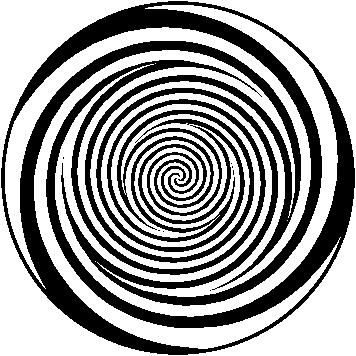 |
LITR 4232 American
Renaissance 2010 final exam—Answers to Question A2 |
 |
Eric Cherrie
It is the Meaning, not the Messenger:
Coming to Terms with Thoreau’s Civil Disobedience
We push a certain
narrative in American society: Our founding fathers were heroes and patriots. We
are allowed to push this narrative because we won the war—winners write history.
However, our founding fathers can also be seen as rebels, as anti-monarchist, as
money and power hungry elitists. In some ways, America’s founding fathers are a
conglomeration of both perspectives. Before the revolutionary war ever took
place, Americans acted out in protest against the British Empire. The most
notable act of civil disobedience is the Boston Tea Party. So what happens when
the “right” government is placed into power? Henry David Thoreau attempts to
explain this in his Polemic titled
Resistance to Civil Government. He believes that there is no “right”
government; by its very structure, government fails to work with the intelligent
people that compromise the minority. The essay calls for the people of
Massachusetts to declare a quiet war against the state. He argues that people
should not pay taxes to the government; resistance to the government will cause
less harm to the individual, than allegiance with the government will cause to
society. To help further explain Thoreau’s notions, Harriet Beecher Stowe’s
Uncle Tom’s Cabin has a wonderful
example of Quakers helping slaves.
The main problem
with Thoreau’s characterization of civil disobedience is not that he
misunderstood the subject, but that he was the one to write about it.
Resistance to Civil Government makes
Thoreau sound like a pompous, arrogant Christian-libertarian. He starts the
essay off by stating the injustices of the Mexican-American War and southern
slavery. These are two great examples for taking about civil disobedience.
Anyone and everyone can see how wars and slavery are bad for the society as a
whole. However, he then brings in two more topics to support his reasoning. The
first topic is duty. Thoreau’s use of duty changes the essay into a giant
Kantian categorical imperative. He is writing a lecture on deontology. This also
assumes that he has an objective understanding of morality. It is a really
arrogant view of his moral compass.
By bringing in duty, he also brings in God. This is the second
topic that ultimately weakens his argument for civil disobedience. Thoreau
writes: “those
who call themselves Abolitionists should at once effectually withdraw their
support, both in person and property, from the government of Massachusetts, and
not wait till they constitute a majority of one, before they suffer the right to
prevail through them. I think that it is enough if they have God on their side,
without waiting for that other one. Moreover,
any man more right than his neighbors constitutes a majority of one already.” A
man who thinks that God is on his side is free to do anything because God wills
it; this is the argument that radical Christians, Muslims, and Jews have been
using for years to feel justified in killing people. This is a horrible idea.
Furthermore, it only makes Thoreau appear to be an even more pretentious
individual than thought before.
Harriet Beecher
Stowe paints a similar message in her book called Uncle Tom’s Cabin. However,
Harriet’s depiction is nowhere near as infuriating. In her story slaves running
away from the south are helped by Quakers. The Quakers are acting in a passive
resistance against the injustice of slavery. Furthermore, they commit this civil
disobedience for the same reasons Thoreau mentions. The Quakers feel they have
an obligation to stop evil; they have a duty to uphold moral law. They also
answer to the laws of God, not man. However, there is something so humanizing
about Stowe’s depiction of the Quakers. They want to help out of the goodness of
their heart. It is endearing for the reader.
In an examination
of civil disobedience, it becomes obvious that the message is right; however,
the messenger can sound like an egotistical fool. Thoreau was right in believing
that Americans have a duty to keep the government from making immoral decisions.
Thoreau presents himself as the moral authority. However, he forgets that
morality is rarely as black-and-white as slavery. He also portrays himself as
some greater martyr for the cause because he did not pay his taxes and spent a
night in jail. It is a step in the right direction; though, the jail scene still
makes him sound more ridiculous than saintly. Stowe describes a very similar
appeal for civil disobedience; however, her book does not add to her own
self-importance. The Quakers come across as heroes for a righteous cause. It
might have been in Thoreau’s best interest to write about Quakers and not
himself.
|
|
|
|


